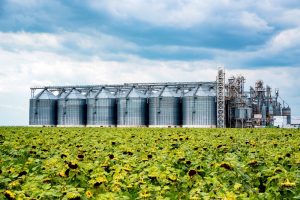
A new study, published in Nature Food and conducted by researchers from the UN Food and Agriculture Organization (FAO) and the European Commission’s Joint Research Centre, found that food systems are responsible for about one-third of global greenhouse gas emissions.
The study examined every stage of the global food chain from production to consumption. Predictably, the largest contribution to emissions (71%) came from agriculture and associated land use and land use change (deforestation, soil degradation), with the remaining from supply chain activities (retail, transport, fuel production, waste management, industrial processes and packaging).
University of Oxford’s Dr John Lynch, who researches the climate impacts of food, noted that “it has often been hard to get fully detailed coverage across the whole food system” and that this new study is a “great resource.” Agriculture takes up half the world’s habitable land. Livestock accounts for 77% of that (including land for growing feed) while it produces only 18% of the world’s calories and 37% of total protein.
Interestingly, food packaging creates more emissions than “food miles.”
The study shows, according to Sonja Vermeulen, program director at the Consultative Group on International Agricultural Research, that we can feed the world’s eight billion people if we address the problems. “It is theoretically possible,” she said, “even with population growth, for everyone in the world to eat a healthy and culturally appropriate diet without transgressing planetary boundaries for carbon, biodiversity, nitrogen, phosphorus and water . . . but that will take a lot of effort both technically and politically.”

The new study highlights that we need a “mixed bag of technical and political solutions,” she added. “… [T]here’s no single silver bullet – if we focus only on more plant-based diets, or only on improved agricultural practices, or only on the energy and transport sectors, we won’t get to where we need to be – we need all three.”
One answer? Farming in less disruptive ways – restorative agriculture to produce food in ways that don’t deplete soils. Examples include permaculture and composting farm and garden waste.
Another answer? Shifting away from diets that rely heavily on animals, which require a lot of land and water and produce high methane emissions. (Plant-centred diets are also healthier.) A solution to global warming and the climate crisis (as well as poverty and deteriorating public health) lies at the end of our knives and forks.
Yet another answer? Paying attention to reducing packaging, long-distance transport, excessive storage and processing, and cutting food waste. Many – maybe most – Orillians are already composting our food waste, bringing our own shopping bags and buying local produce at farmers’ markets. We have many opportunities to resolve the climate crisis, and we need them all. Food systems are a big piece of the puzzle.
With thanks to Dr John Lynch, Sonja Vermeulen, David Suzuki and Ian Hanington